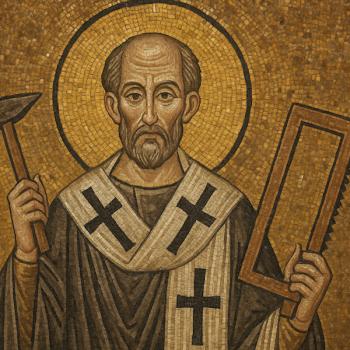
Mary Davis once said, “The more grateful I am, the more beauty I see.” I believe the more I have gratitude for where we live, the more beauty I will see in the place I live and the life I live within it. In a culture that feeds on discontent, I want to resist by cultivating intentional practices of gratitude. I want to see more of the beauty in my life, and the place I live, more than just the places of struggle and discontent. The more grateful we are—even for the places we live and the lives we lead within them—the more beauty we will notice around us.
This pursuit of gratitude reflects my desire to live out 1 Thessalonians 4:11—embracing simplicity, focusing on what matters most, and honoring the quiet, faithful work of serving others with grace. Finding gratitude for where I live and the lives I share there brings deep contentment to this intentional way of living.
The Reflections So Far
For the past two blog posts, I am been exploring what it means to build a “house of gratitude” in our lives. In the first blog post, Gratitude in the Workplace, we looked at Daniel 6 and how gratitude in our work helps anchor us with purpose. Then I looked at Gratitude in Worship, and Psalm 100, finding how this liturgical psalm reminds us how we should approach our times of praise and worship. The more grateful we are in these space, the more beauty we see at play in our lives.
Gratitude Where We Live
This week, we’ll wrestle with gratitude for the places we live. Practicing gratitude for the places we live and the lives we lead within them – helps us see God’s blessings more clearly and steward them faithfully. By doing so, we can experience the truth that we have tasted and seen that the Lord is good. Gratitude reveals the beauty of the places we call home, helping us develop contentment both for the places we live and the lives we lead within them. Discontent about our homes or circumstances is common. We might dream of living elsewhere or get frustrated by things like chipping paint or financial limitations. The more we practice gratitude for the places we live, the more we can appreciate the beauty of that place and the lives we live in it.
Place Matters
Place matters a lot in the earliest stories of humanity’s journey with God. From Genesis 1 to Deuteronomy 8, the importance of place is deeply rooted in God’s plan for humanity. In Creation, God intentionally placed Adam and Eve in the Garden of Eden, a space designed for beauty, provision, and communion with God, calling them to steward it and care for it faithfully. Even after the fall, when humanity loses the connection to the place of “Eden,” God continues to place the people of God in specific locations to fulfill the purposes that God has for a place or a people. God calls Abraham to leave his homeland and promises his descendants a land where they will flourish as a blessing to all nations. In the Exodus, God leads Israel from slavery in Egypt to a promised land that matters, teaching them along the way to trust in divine provision and to recognize the beauty of the presence of God in each place. By Deuteronomy, God calls the next generation of the people of God to not only steward the land they are about to inherit but also to see its beauty and remember that it is a gift. In each story, place matters.
Summarizing the Passage
Place in Deuteronomy 8 is super important. But first, Deuteronomy, it’s a funny word. It is a word that means “words,” or “second words.” Rabbi Posner explains it like this: “In Hebrew, the book is commonly referred to as Devarim, meaning ‘words’ or ‘things,’ based on the opening line, ‘And these are the words that Moses spoke to the children of Israel.’ Since Moses uses this book to recount many events and commandments previously recorded in the other books of the Torah, it is also known as Mishneh Torah, ‘a second Torah,’…or…‘second law.’” It’s a reminder for the next generation. Christian scholars point out that “Deuteronomy is an expression of the will of God which must be obeyed. A people redeemed from slavery and bound to their God by a covenant needed some guidelines for a happy life in fellowship with God and with one another.” This book is about the rules of that happy life for the next generation of life —and we are going to see that gratitude for “place,” or where we live life, matters a lot.
Deuteronomy 8 reminds God’s people to remember how God led them through the wilderness, providing for their needs and teaching them to trust in God’s provision. It also reminds them place is important. No, God’s promises don’t apply to us in the same way. We are not inheriting a physical Promised Land in the same way. However, the principles Moses teaches still hold profound value and truth for us today.
How Place Matters in Moses Commentary
In Deuteronomy 8, Moses continues to teach the Israelites how to live faithfully and contentedly in the land God is giving them. In fact, Moses emphasizes that gratitude is central to their relationship with God and their stewardship of the land. From the outset, it is clear that the land God provides is more than a mere possession—it is a sacred gift, meant to be received with gratitude and stewarded faithfully. Moses assures the people that contentment will come as they honor and care for this divine gift. Our place matters. It is a gift.
The land is described as a “good land,” inherently abundant and capable of meeting all their needs. Verse 7 highlights its richness: brooks, streams, and springs gushing through valleys and hills. Verse 8 adds to this imagery, describing fertile farmland and sweetness—not the bee-produced honey we think of today, but the nectar-like richness of its fruit. The land overflows with every provision: abundant bread, tools fashioned from iron and copper, and vineyards for wine (What else could you want, tools, bread and wine?). This abundance underscores that God’s provision is not only about survival but also about experiencing the goodness and beauty that lead to contentment. Faithful living by God’s people will bring blessings not only to themselves but also to the land, illustrating the interconnectedness of humanity and creation—a theme echoed throughout Scripture and history during moments of renewal and revival. When we are grateful for place, we steward it better and it yields more blessings.
In verse 10, Moses promises that the people will eat their fill and delight in the land’s goodness. It’s as though he’s saying, “You’ll have all you need— unlimited chicken wings, a Lazy-boy chair, and all the sports channels.” However, Moses also issues a stern warning: do not forget the Lord or turn to other gods. In their time, these gods were idols demanding allegiance; in our time, they often take the form of consumerism and materialism, enticing us with their rules for satisfaction. Modern marketing thrives on fostering discontent, convincing us that our homes, possessions, and lives are never enough. This perpetual striving for more undermines gratitude and leads to spiritual discontent.
Moses warns that forgetting God is not just neglecting worship but allowing worldly values to shape how we think and live. Such forgetfulness, he says, leads to destruction—not only of community and land but also of our contentment and soul’s contentment. Ingratitude, especially for place, lies at the heart of discontentment, making it not just an emotional struggle but a spiritual one with far-reaching consequences.
The core of this passage is found in verses 10-11, where Moses calls for a heart posture of gratitude, not merely obedience to commands. There Moses urges the people: “When you have eaten and are satisfied, praise the LORD your God for the good land he has given you. Be careful that you do not forget the LORD your God, failing to observe his commands, his laws and his decrees that I am giving you this day.” Gratitude is a spiritual practice that anchors the people in their faith, fostering an appreciation for the place they inhabit and the lives they live there.
Note, Moses also warns against pride, which can arise in times of abundance. Moses reminds the Israelites that their blessings are not the result of their own strength but of God’s provision. Reflecting on their humble beginnings—wandering the wilderness with snakes, scorpions, and scarcity—Moses reinforces the importance of remembering God’s hand in their deliverance and abundance. Forgetting this, Moses says, leads to ruin, as pride and discontentment draw hearts away from God. Ingratitude in our lives, is forgetting the blessings God has given us through place and the lives we live within that space.
Gratitude is a safeguard against pride and discontent. It reorients our hearts toward God, keeping us grounded in faith and content in God’s provision. It is the key to living abundantly, rightly, and faithfully in a place.
Three Practices of Gratitude for Place
Finding contentment in the place we live, and the lives we live there starts when we:
- Take Notice of the Place You Live and the Provisions in it. Deuteronomy 8:10 reminds us to “praise the Lord your God for the good land He has given you,” the abundance of a place, it is encouraging us to recognize and thank God for His faithful provision in every detail of our lives. Maybe we just need to sit underneath the starry nights sometimes and just say, “thank you God for this beautiful sky.” Practicing gratitude where you live is about walking and taking note of the specific blessings around you—your home, food, safety, yard, the beauty of the area, and community and thanking God for it. It is about training ourselves to see the beauty in the place you live, not just the problems.
- Steward well God’s Gifts in the Place You Live. Deuteronomy 8:11 warns us not to forget God by failing to recognize God’s blessings, but it is also about stewarding what God has entrusted to us, which is an active way to remember and honor God, but also to help others. Practicing gratitude where you live is about looking for ways to honor God through how you care for what God has given you—whether it’s tidying your space, sharing a meal with someone, or using resources to help a neighbor. All that we have becomes part of our hospitality to others. Maybe stop and journal how you might use your gifts—time, talents, or possessions—to bless others and honor God. It is about training yourself to see the beauty in your life that can be extended to others.
- Learn to Be Thankful for the Life You Have. Deuteronomy 8 emphasizes the abundance and goodness of the land but also the reminder that God had given them a story and a life, it wasn’t perfect it had hiccups, but it was worth being thankful for. Practicing gratitude where you live is also about reflecting on how God has led us through challenges and blessed us with a story worth celebrating. Reflect on one way God has guided or blessed you in your current season, even in the midst of imperfections. Train yourself to see the beauty in the busy and broken life you are living.
I think these practices help us to find contentment in the place we live, and the lives we live there.
Conclusion: A Grateful Heart Sees More Beauty
As Mary Davis said, “The more grateful I am, the more beauty I see.” Gratitude transforms the way we view our place, our lives, and our relationships. It opens our hearts to the goodness of God and helps us recognize the blessings that surround us.













